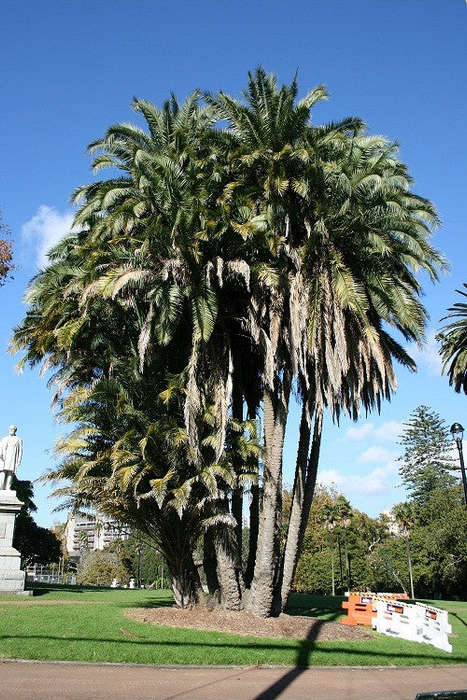
Wild Date Palm - Phoenix Reclinata - Indigenous Palm - 10 Seeds
Check my rate
View locations
| Main centres: | 1-3 business days |
| Regional areas: | 3-4 business days |
| Remote areas: | 3-5 business days |

| Main centres: | 1-3 business days |
| Regional areas: | 3-4 business days |
| Remote areas: | 3-5 business days |
| Phoenix reclinata can reach up to 12 m but is most often between 3 and 6 m. It may be either single or multi-stemmed, sometimes forming a dense, bushy clump. The leaves are arching, bright green fronds and form crowns at the top of the stems. The old fronds remain on the tree and become 'petticoats' as they hang straight down beneath the crown. The flowers appear during August, September and October. Male and female plants are separate. The inflorescences form attractive yellow sprays. Male flowers produce masses of pollen which is released in clouds. The orange-brown fruits are borne during February, March and April. They are oval in shape and smaller than the commercial date. It is a protected tree in South Africa. The wild date palm grows naturally from the Eastern Cape extending as far north as Egypt. Its natural habitat is riverbanks and swamps, although it is occasionally found in grasslands if the water table is high enough. The roots are usually in water, therefore it would be tolerant of waterlogged conditions in cultivation. It will also take light frost but this will most likely affect the ultimate shape, making the palm dense and bushy rather than tall and elegant. Birds, monkeys and baboons eat the ripe fruit. Bushpig, nyala and bushbuck feed on fallen fruit. This is possibly a means of seed dispersal. The leaves are eaten by the palm-tree nightfighter butterfly caterpillar. |